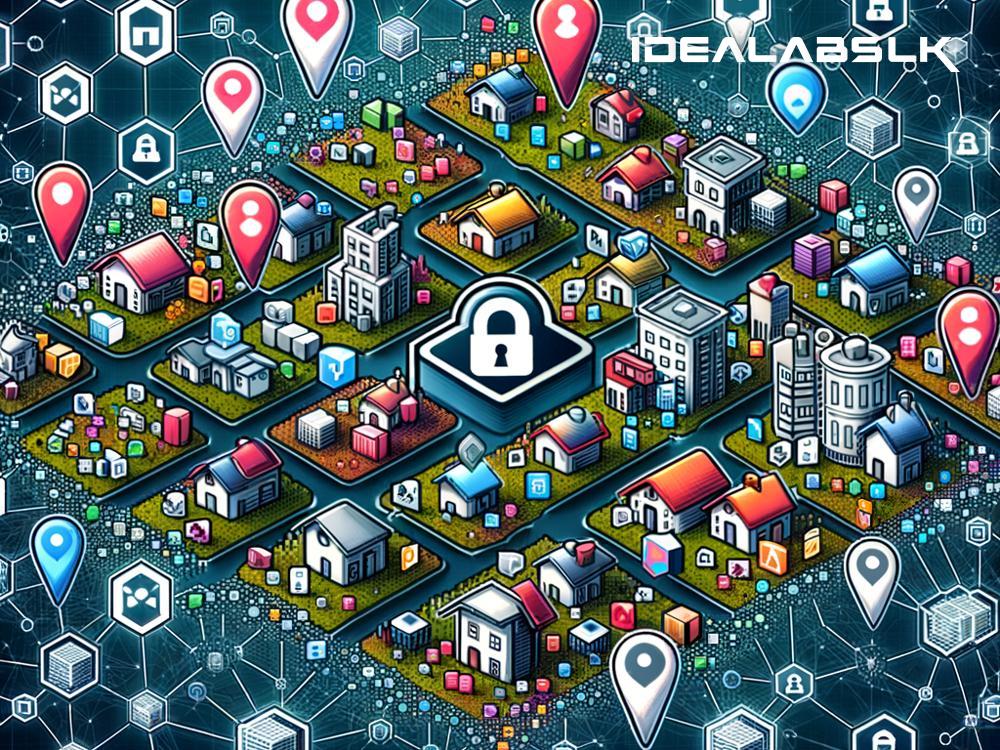Title: "Unlocking the Future: The Magic of Blockchain-Based Real Estate Property Registries"
Have you ever played a game of Monopoly? In the board game, buying and selling properties is straightforward—transactions happen in the blink of an eye, and everyone knows who owns what. However, in the real world, the process is nowhere near as simple. The real estate market can often feel like a maze full of legal documents, endless waiting periods, and an array of intermediaries that slow everything down. But what if there was a way to make property transactions as easy and transparent as playing Monopoly? Enter the world of blockchain-based real estate property registries—a game-changer that's paving the way for a more efficient, secure, and transparent property market.
Understanding Blockchain
To grasp how blockchain can revolutionize the real estate industry, it's crucial to first understand what it is. Imagine a digital ledger that is completely transparent, secure, and cannot be tampered with. Each transaction or block is recorded in numerous copies of the ledger, distributed across a network of computers. This means that once a piece of information is entered, it cannot be altered without changing all subsequent blocks and gaining approval from the network. This makes blockchain an incredibly trustworthy and verifiable system.
The Current Challenges of Real Estate Transactions
The journey of buying or selling property today involves numerous steps and participants, including agents, banks, legal teams, and government registries. It's a process filled with paperwork, verifications, and lots of waiting. This not only prolongs the transaction time but also adds significant costs. Furthermore, the risk of fraud and human error looms large, impacting trust and security in property transactions.
How Blockchain Reimagines Property Registries
Blockchain technology offers a promising solution to these challenges. By moving property registries to a blockchain, each property gets a unique digital identity. Transactions involving this property, including sales, mortgages, and leasing agreements, can then be securely and transparently recorded on the blockchain. Here's how this changes the game:
-
Transparency and Trust: With blockchain, every transaction is recorded in a way that is verifiable by anyone. This transparency reduces the potential for fraud and builds trust amongst participants in the real estate market.
-
Efficiency and Speed: Blockchain cuts out many of the intermediaries currently required, simplifying the process. Transactions that used to take weeks can now be completed in a matter of minutes or hours.
-
Security: The decentralized and immutable nature of blockchain makes it extremely secure. Once a transaction is recorded, it cannot be altered, reducing the risk of tampering, fraud, or human errors.
-
Cost Reduction: With fewer intermediaries and streamlined processes, the costs associated with real estate transactions can be significantly reduced, making property transactions accessible to more people.
Real-World Applications and Future Possibilities
Around the globe, several countries and companies are exploring blockchain for real estate transactions:
-
Sweden: The Scandinavian country is pioneering a project to move its land registry onto a blockchain, potentially reducing the time for property deals.
-
Georgia: In partnership with a blockchain company, Georgia has created a blockchain-based property registry, enhancing security and efficiency in property transactions.
These are just the beginning. As technology advances, we could see more innovations, including smart contracts that automatically execute transactions under specific conditions, further simplifying the process.
Navigating the Challenges Ahead
Despite its potential, the adoption of blockchain in real estate comes with challenges. Regulatory approval, standardization of processes, and data privacy concerns are some of the hurdles that need to be addressed. Moreover, getting the traditional real estate industry to embrace this new technology is no small feat.
Conclusion
Blockchain-based real estate property registries have the potential to redefine the property market, making transactions as easy as a game of Monopoly. By offering a system that is secure, transparent, and efficient, blockchain can address many of the current challenges in real estate. As the world becomes more digital, adopting such innovations could not only enhance property transactions but also open up new possibilities for the industry. The future of real estate looks promising, and it's time we unlock its potential with the magic of blockchain.

